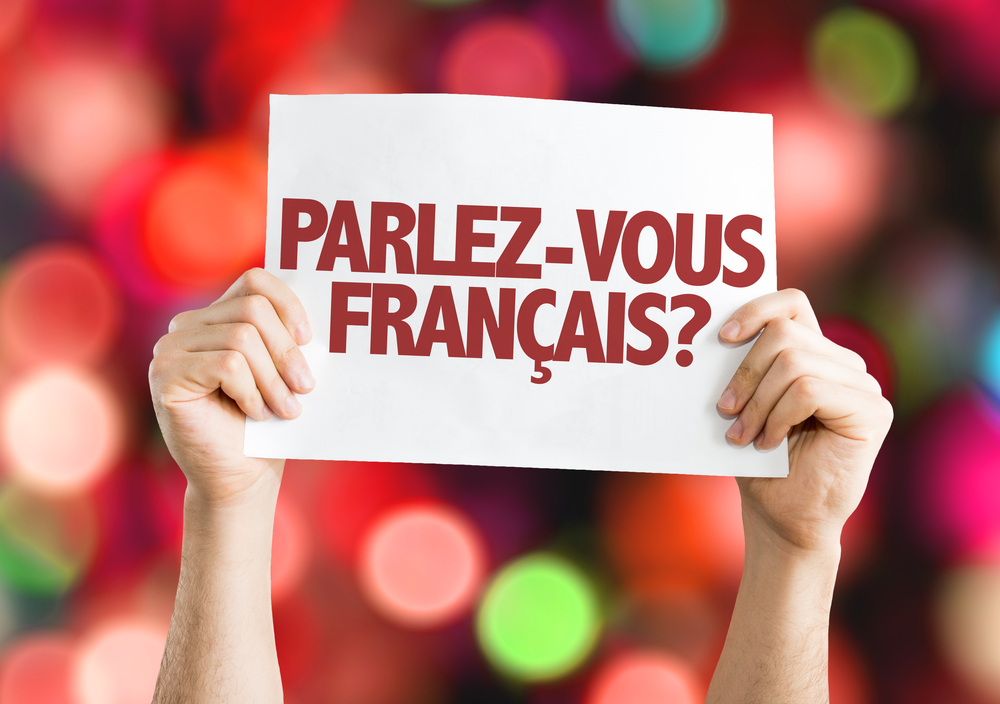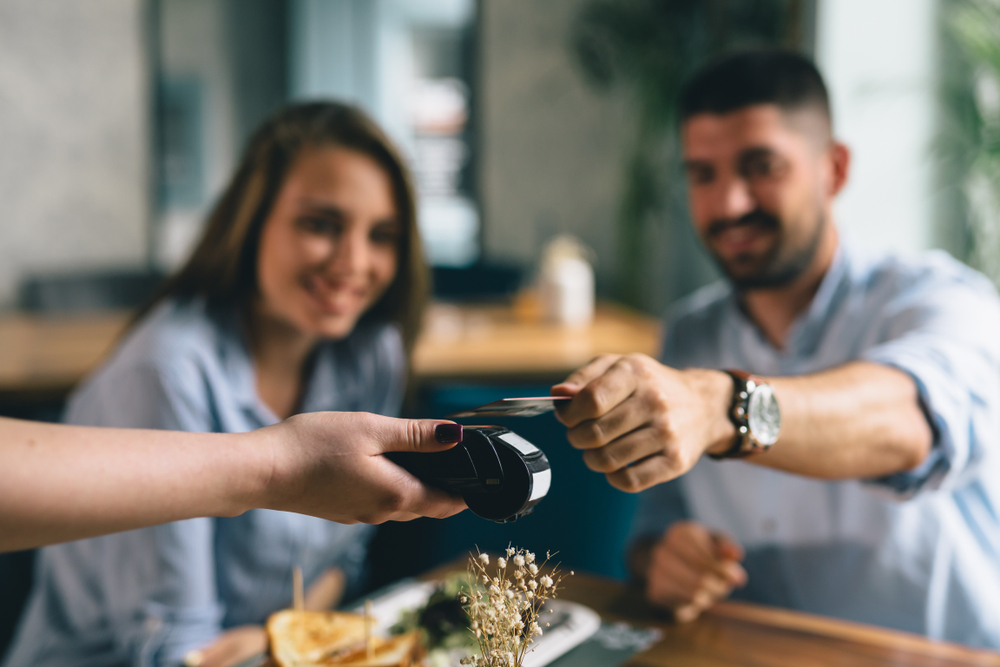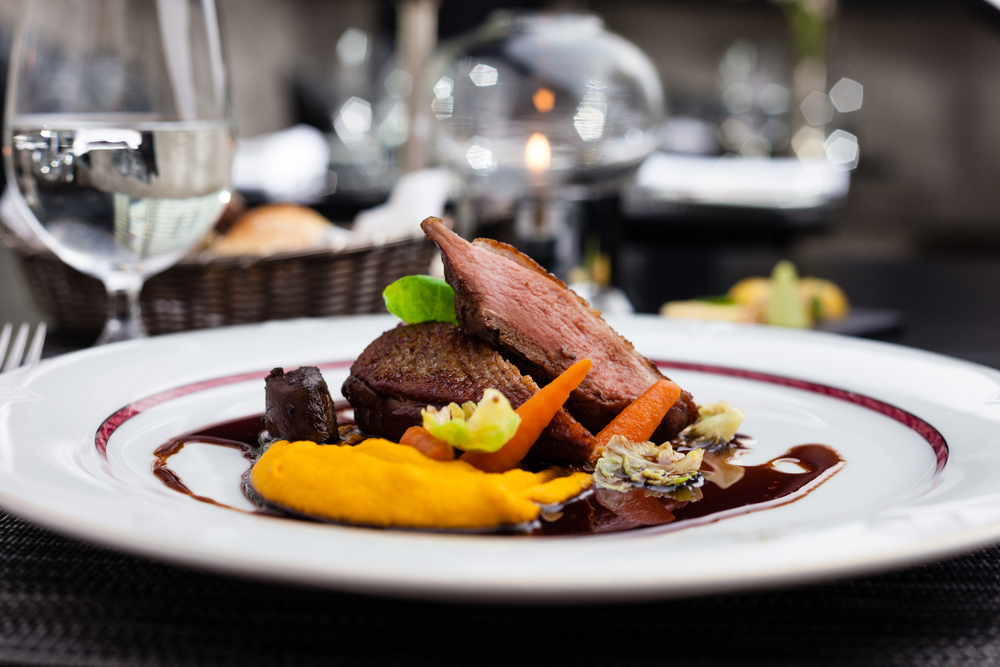France is loved and respected worldwide for its connections to art, civic engagement, cuisine, and a progressive political landscape. Everything — from the romantic landmarks of Paris, such as the Eiffel Tower and the Louvre Museum, to the quaint lushness of the French countryside — has lodged itself in the international imagination. Many regard French people as some of the most stylish in all of Europe, and French food is world-famous for its emphasis on quality ingredients.
For these reasons and countless others, more people plan to say bonjour — or “hello” — to the land of the baguette each year, and tourism to France has always been popular with American travelers. French culture is highly sophisticated and elegant, so it might be wise to pick up a few travel tips on French etiquette before you “air kiss” your first Parisians.
Key Points
- The finer points of French dining and tipping
- How to behave on French public transportation
- The right clothes for every occasion in France
- French social engagements and other nuances
This article will provide etiquette tips that can help you stay on the good side of French locals and know what to do to be respectful in different settings in France.
The Importance of Social Etiquette in France

The French have a global reputation for being sticklers when it comes to social and cultural etiquette matters. It’s easy to make a faux pas without meaning to do so if you haven’t familiarized yourself with the customs of different regions of France. It’s also important to recognize that such customs will vary concerning urban versus rural locations and other factors.
While French people can wear somewhat of a misplaced label as “rude,” they are actually just reserved and respectful. They don’t care for guests who aren’t likewise reserved and respectful and may show this with a simple gesture, such as a raised eyebrow. Any time you’re in a foreign country, it’s vital to behave according to their social norms. This is especially important to remember when you’re in France.
French Language Is Critical

By far, an essential element of French etiquette is always to attempt to speak the French language. Of course, French people don’t expect you to be fluent, but knowing simple French phrases like au revoir for “goodbye” and il vous plaît or s’il vous plaît — which translates to “if it pleases you” or “if it gives you pleasure” — can save you enormous hassles.
Most French people are taught English at school and will graciously switch to speaking to you in English — locally referred to as “Anglais” — if you ask politely and have shown you care enough about their native language to attempt to speak to them in French first.
It’s not difficult to master everyday French words, such as merci for “thank you” or bonsoir for “good evening” — and doing so can endear you to most of your hosts. However, pay attention to the English you speak to your new French friends. Speak slowly, carefully, and avoid as much cultural slang as possible to ensure they understand you properly. Remember that English may not be their first language any more than Francais is yours.
Tipping Culture in France

Nearly all French restaurants will include a service charge in the total for your table’s bill. However, it’s perfectly fine and polite to offer a tip to French servers if they give you fantastic attention. The amount is not as important as the gesture, and any tip to a waitress or waiter is appreciated, as these workers typically earn minimum wage in France.
Taxis represent a similar story, and while it’s not mandatory to tip taxi drivers in France, drivers still appreciate the gesture as a reward for great service. One instance where tipping is non-negotiable in France occurs when dealing with a tour guide. Tipping tour guides is expected and proper. The amount you tip should be relative to the duration of your tour, the quality of the information your tour guide provides, and the overall size of your group. Anywhere from €5 to €20 is considered standard.
Restaurant Etiquette

French cuisine is one of the country’s most treasured cultural offerings. Cafes and bistros in France are gathering places where elevated conversation and excellent food are the norms. As such, there’s an array of dining rules you’ll want to become familiar with before taking a seat at your first French restaurant.
Table manners in France dictate that your hands should remain on the table at all times, and your elbows should never touch the table. If you visit most French restaurants and don’t close your menu once you’ve made your selections, many French waiters and waitresses won’t even approach your table! Restaurant guests in France shouldn’t expect speedy service, as French wait staff will give customers plenty of time and space to ponder the menu and enjoy the atmosphere.
Never ask for recipe modifications in France unless you’re allergic to an ingredient. If that’s the case, make sure your wait staff understands this is why you’re requesting the change, or else your request might be viewed as an insult to the chef.

Similarly, don’t ask for to-go boxes or doggy bags unless you’ve seen the server offering them to other tables. Asking to take leftovers home may seem like a harmless way to avoid waste, but wait staff might perceive such requests as a criticism of their establishment or portion sizes in France. French portions are much smaller than many travelers may be accustomed to, but are believed to be just the right size.
When you’re eating at any French restaurant, remember to slow down. Lunch is typically a drawn-out affair that can last two hours. The length of a French meal is one reason it’s customary for coffee or tea to be ordered after dessert, not with it. Espresso as the conclusion to the meal allows patrons to sit, chat, and take in the surroundings in a leisurely way. Rushing or haste at the table is seen as rude, as is talking business.
France Public Transportation Etiquette

France is not a car-centric country, and most people in urban areas walk, bicycle, or take the train to get where they’re going. Interestingly, anywhere a line is likely to form, French people have no problem pushing past others to get closer to the front. So you shouldn’t be offended if you’re standing in line for the metro in Paris and herds of people are brushing past you to get closer to the train. Jumping the line is acceptable and even expected in France.
The French expect quietness on public transportation in France. However, once you get onto the transport in question, the rules become quite a bit more formal. These formalities are not because the French people aren’t welcoming, but because their belief in everyone’s right to privacy and peace is absolute. Therefore, you should refrain from any loud talking, laughing, or speaking on a cellphone. Travelers should also note that small talk with strangers is highly discouraged. You should remain silent but friendly unless your neighbor on the train begins a conversation with you first.

Another thing to be aware of when riding buses and trains in France is alertness toward standing passengers. Keep your eye on anyone who doesn’t have a seat on the train or bus. If you see someone elderly, pregnant, physically challenged, or even holding a large number of heavy bags, give up your seat freely to that person. It’s rude to keep your seat in France when it’s obvious that someone else needs it more than you.
How to Dress for Different Occasions in France

It’s no secret that France is famous for fashion, and Paris is one of the world’s largest fashion hubs. With couture boutiques lining many of the streets of Paris, you’ll quickly find yourself out of place in France if you show up to public gatherings wearing dressed-down clothing items, such as flip-flops, shorts, tank tops, and even worn-in jeans. This sense of fashion means you’re likely to see a lot more dressing up for everyday events than dressing down.
French women will dress in heels, dresses, and other formal attire for most dining outings. French men will likely be in business suits or business casual clothing. For events like a night out, the French custom is to go all out. Travelers can blend in best with French dressing customs by always remembering to overdress rather than underdress.
Manners for French Social Events

Going to social functions in France comes with a few traditions that might be new to travelers unfamiliar with French culture. Perhaps the most famous of these is la bise — or the tradition of offering between two and four air kisses to new acquaintances!
While it’s customary to shake hands upon meeting someone for the first time, don’t be surprised if that same person offers you la bise as a goodbye a few hours later! The best advice for those concerned about air kissing is to follow the lead of your French counterparts. Copy their number of kisses and style (lips touching cheek or lips not touching cheek).
When invited to a French gathering at someone’s home, always bring a gift for your host. Although a bottle of wine might seem an appealing gift option in a country famous for loving wine, it can be read in a social setting as though you’re saying the host’s wine isn’t good enough. Stick with other small treats, such as macarons, chocolates, or wildflowers for the table.

On the subject of wine, there are further rules. If asked to pour, always serve everyone else at the table before serving yourself. Never fill anyone’s glass above half full. Leave some wine in your glass when you’ve finished drinking. The French custom is to refill any empty wine glass, so draining your cup doesn’t signal a conclusion to your imbibement there!
Be mindful of closed doors when in French homes. In France, people value personal space in public areas and private homes at a premium. As a result, French hosts aren’t likely to take you on a tour of their home like what might occur for new guests in other places. Most French homes have designated guest areas, and the only closed door that guests are permitted to open in a French home is the bathroom door. Always close it when you leave as well.
French Cultural Nuances to Look Out for

There are a few other aspects newcomers should understand about French culture. The first is always to greet every shop assistant when you enter a store. French shop assistants won’t seek you out or address you when you come into their establishments. Failing to say bonjour madame/monsieur which translates to “hello, ma’am” or “hello, sir” — or enchante meaning “nice to meet you” — might get you poor service at French shops.
Always refer to new people by their formal title. If you know the person is a doctor or another titled individual, using the appropriate identifier is expected. Otherwise, stick to “madame” or “monsieur” and the person’s surname. Only use first names with French people you’ve known for a very long time or who’ve openly invited you to do so.
Never come out of your favorite French boulangerie — a.k.a. “bakery” — munching on the croissants you just purchased. Eating on the street in France is considered uncouth, as is chewing gum in public. Likewise, never snap your fingers, either to yourself or anyone else, to get their attention. Snapping your fingers at someone is regarded as the height of rudeness in France.

Always be aware of the volume of your voice, no matter where you are. Loud talking anywhere is discouraged and thought of as selfish and low-mannered in France. Never is this more true than at the movies. Cinema culture in France is serious. Don’t talk, text, or otherwise call attention to yourself if you go to the movies in France. Once the film has begun, even stepping out to get a drink refill or using the restroom should be avoided, if possible, as this can distract fellow viewers.
Eye contact will be brief in France, but stares may last longer. Don’t expect lingering eye contact with French people if you aren’t engaged in direct, one-on-one conversations. French people like to look at the styles and fashions of everyone on the streets, and you should view their stares as appreciative when you get them, but eye contact will be short to non-existent with strangers.
Discover France Through VacationRenter
Whether you’ve been dreaming of that honeymoon in Paris or want to smell the lavender in Provence firsthand, we can help make your French travel dreams come true. Just plug in your desired dates and number of guests, then sit back and watch vacation options appear at your fingertips. So check out VacationRenter today, and be one step closer to saying bonjour to all that France has to offer!